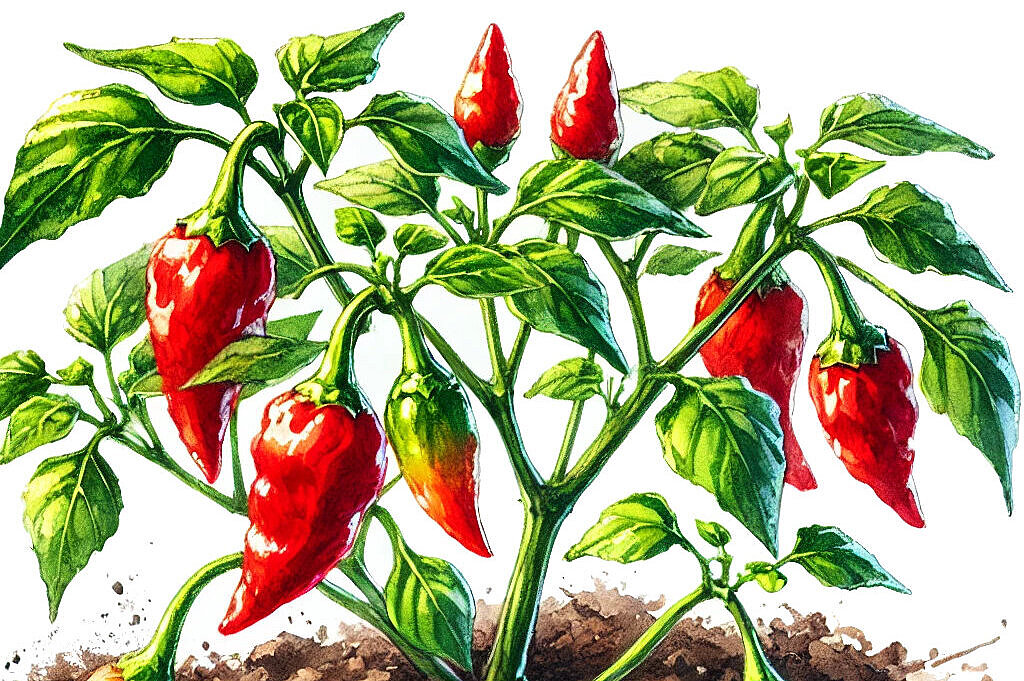Habaneros

When it comes to feeding our beloved four-legged friends, we are always on the lookout for the best - but sometimes this search leads us down unexpected paths. Habaneros, known for their intense heat, are hardly on the usual list of dog-friendly ingredients. But what happens when the world of hot spices meets dog nutrition? This article explores the terrain of habaneros in relation to dogs, highlighting both the potential benefits and the inevitable drawbacks.
What are habaneros?
Habaneros are one of the hottest chili varieties in the world. Originally from the Amazon region, they have found their way into kitchens around the world, especially in Latin America and the Caribbean. The spiciness of habaneros is caused by the active ingredient capsaicin, which is not only responsible for the burning sensation on the tongue, but can also have various health benefits for humans. But what about our dogs?
Habaneros in dog food: a sharp balance
The question of whether habaneros have a place in a dog's diet should be approached with caution. Here we take a detailed look at the pros and cons of such a decision.
Possible advantages
Antioxidant properties
Habaneros contain antioxidants that provide health benefits for humans. Theoretically, these antioxidants could also benefit dogs by helping to protect cells from free radicals.
Vitamins and minerals
Like many vegetables, habaneros contain vitamins and minerals that can contribute to a healthy diet. These include vitamin C and vitamin A, which are beneficial for the immune system and eyesight.
Unmistakable disadvantages
Gastrointestinal irritation
The spiciness of habaneros, caused by capsaicin, can cause severe gastrointestinal discomfort in dogs. Symptoms may include vomiting, diarrhea and extreme restlessness.
Mucous membrane irritation
Capsaicin not only irritates the digestive tract, but also the mucous membranes in the mouth, nose and eyes. This can lead to considerable discomfort in dogs.
Risk of capsaicin toxicity
Capsaicin can be toxic to dogs in the event of an overdose. The symptoms of poisoning range from respiratory distress to lethargy and can be life-threatening in severe cases.
Better safe than sorry
While the potential health benefits of habaneros in the human diet are well known, the risks clearly outweigh the benefits when introducing them into a dog's diet. The spicy properties of habaneros can cause serious health problems in dogs, which raises the question of whether it is really necessary to explore such extreme ingredients when it comes to our pets' diets. The answer is obvious: there are safer and healthier ways to enrich our best friend's diet. If you're looking for ways to supplement your dog's diet, it's a good idea to focus on proven, dog-friendly ingredients. Your dog's health and well-being should always come first - and in this case, that means refraining from adding habaneros.
If you notice any signs of hypersensitivity or poisoning in your dog, you should see your vet immediately. We are not a substitute for a vet, but we try to be as accurate as possible. Every dog reacts differently and we recommend you get a second opinion or consult your vet if in doubt.
Stay healthy and take good care of your four-legged friend!😊
Similar to Habaneros
Jalapeños are medium-hot chili peppers that belong to the Capsicum annuum species. They are a staple food in Mexican cuisine and are enjoyed worldwide in both fresh and canned form. Jalapeños are...
Chili peppers are the fruits of plants of the Capsicum genus, which also includes peppers and chili peppers. There are many different varieties of chili peppers, which differ in shape, color, size...
Scotch bonnet chillies belong to the Capsicum chinense species and are closely related to other hot chillies such as habaneros. They are particularly well-known in Caribbean cuisine and are...
Thai chilies, also known as bird's eye chilies, are small, hot peppers that are commonly used in Thai cuisine. They are characterized by a high concentration of capsaicin, a chemical compound that...



